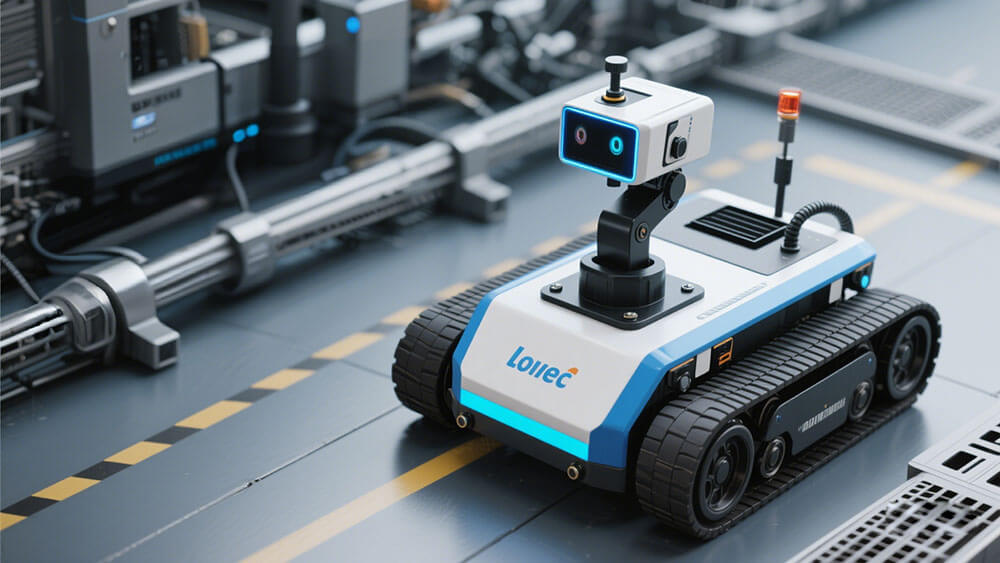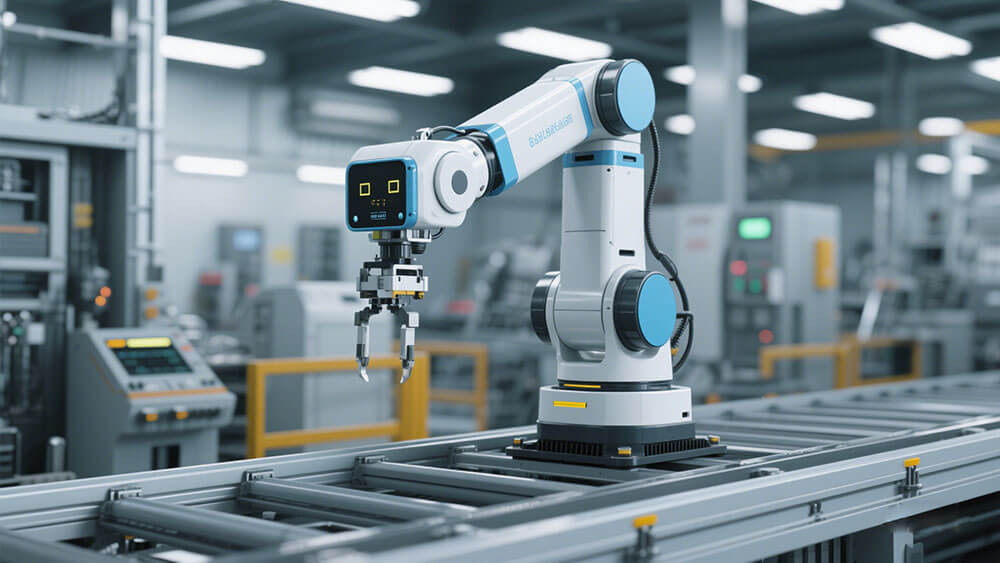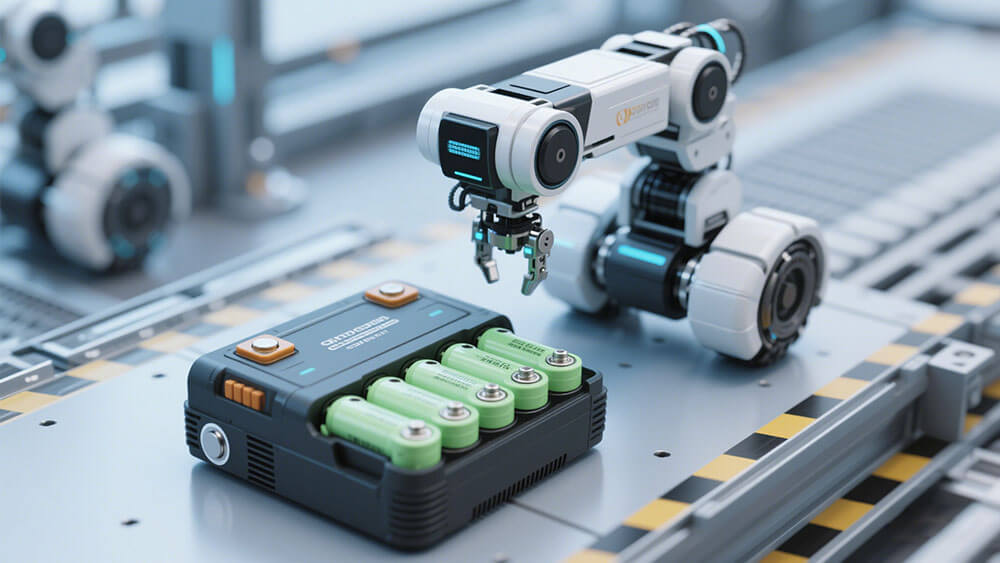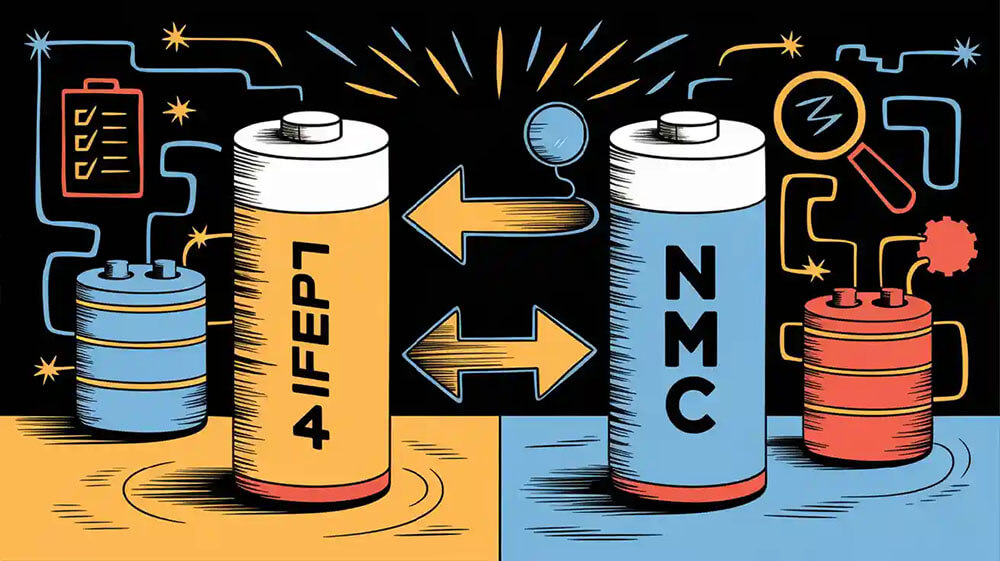Contents

Inspection robots rely on the Lithium Battery to deliver superior performance in demanding environments. These batteries ensure optimal energy efficiency, enabling uninterrupted operations. Their lightweight design enhances robot mobility, while their adaptability supports various applications. For instance, lithium-ion batteries stabilize electrical grids, regulate frequency, and provide robust backup power, making them a reliable solution for industrial and high-risk scenarios.
Key Takeaways
Lithium batteries last long, so robots work longer without recharging. This helps them finish important tasks faster.
Lithium batteries are light, making it easier for robots to move. They can travel through tricky places better.
These batteries charge quickly, cutting waiting time. Robots can get back to work fast and stay productive.

Part 1:Overview of Inspection Robot
1.1 What Is Inspection Robot?
An inspection robot is a specialized machine designed to perform automated monitoring, analysis, and evaluation tasks in various environments. These robots utilize advanced technologies like computer vision, obstacle avoidance, and deep reinforcement learning to navigate and assess their surroundings effectively. Their primary purpose is to enhance operational efficiency, reduce human intervention in hazardous areas, and ensure consistent quality in inspections.
Modern inspection robots are equipped with cutting-edge features that make them indispensable in industrial and high-risk environments. The table below highlights some of the key features and their functionalities:
Feature | Description |
|---|---|
Obstacle Avoidance | Algorithms enabling safe navigation around obstacles, including AI-based methods. |
Computer Vision | Techniques for perceiving environments, identifying objects, and making decisions based on visual data. |
Object Detection | Methods for identifying and classifying objects, crucial for inspection tasks. |
Image Segmentation | Dividing images into distinct regions to identify defects and features in components. |
Deep Reinforcement Learning | Teaching robots optimal navigation strategies through environmental interaction. |
Convolutional Neural Networks | Real-time obstacle detection and avoidance for navigating complex environments. |
Particle Swarm Optimization | Optimizing paths while considering efficiency and energy consumption. |
These features enable inspection robots to operate autonomously, ensuring precision and reliability in tasks such as defect detection, structural analysis, and environmental monitoring.
1.2 Application Scenarios for Inspection Robot Lithium Battery
The lithium battery of inspection robot plays a critical role in powering these advanced machines across diverse application scenarios. Industries rely on these batteries to ensure uninterrupted operations, especially in environments where safety and efficiency are paramount. Below are some notable examples:
Electric Vehicle Battery Disassembly: Inspection robots equipped with lithium batteries excel in tasks like unbolting, sorting, and cutting during electric vehicle battery disassembly. This ensures safety when handling battery modules, mitigating risks such as shorting terminals and mechanical shocks.
Industrial Inspections: Robots powered by lithium batteries perform structural evaluations, defect detection, and quality assurance in manufacturing plants and infrastructure projects.
Hazardous Environments: In sectors like oil and gas or nuclear facilities, inspection robots rely on lithium batteries to operate safely in high-risk zones, reducing human exposure to danger.
Autonomous Monitoring Systems: Lithium-powered robots are integral to autonomous systems, ensuring continuous operation in remote or inaccessible areas.
These scenarios highlight the versatility and reliability of lithium batteries in supporting inspection robots across various industries. By choosing a tailored battery solution, you can optimize the performance and longevity of your robotic systems. Explore custom solutions from trusted providers like Large Power to meet your specific needs.

Part 2: Features of Lithium Batteries for Inspection Robots
2.1 Long Battery Life for Continuous Performance
Inspection robots often operate in environments where interruptions can lead to inefficiencies or safety risks. Lithium batteries excel in providing long battery life, ensuring these robots maintain consistent performance over extended periods. With advanced chemistries like LiFePO4, these batteries offer a long cycle life, ranging from 2,000 to 5,000 cycles, significantly outlasting traditional lead-acid batteries. This durability minimizes the need for frequent replacements, reducing operational costs and downtime.
The high energy density of lithium batteries further enhances runtime, allowing inspection robots to perform tasks such as structural evaluations or defect detection without frequent recharging. For example, a lithium battery of inspection robot can power autonomous systems for hours, ensuring uninterrupted monitoring in critical applications. By choosing a tailored battery solution, you can optimize the runtime and reliability of your robotic systems.
2.2 Fast Charging to Reduce Downtime
Fast charging is a crucial feature for inspection robots, especially in industries where operational efficiency is paramount. Lithium batteries for mobile robots support rapid charging capabilities, enabling these machines to return to work quickly. This feature significantly reduces downtime, ensuring near-continuous operation.
By leveraging fast charging technology, you can enhance the productivity of your inspection robots, ensuring they remain operational even during demanding schedules.
2.3 Compatibility with Diverse Robotic Applications
Lithium batteries are highly adaptable, making them suitable for a wide range of robotic applications. Whether you are deploying robots for industrial inspections, hazardous environment monitoring, or autonomous systems, these batteries provide the flexibility needed to meet diverse operational demands. Their ability to deliver consistent voltage ensures stable performance across various tasks, from precision defect detection to large-scale infrastructure assessments.
For instance, lithium batteries for mobile robots can power advanced navigation systems, enabling robots to operate efficiently in complex environments. Their compatibility with different robotic designs and functionalities makes them an ideal choice for businesses seeking reliable and versatile power solutions.
2.4 Complex Environment Protection Ability
Inspection robots often operate in challenging environments, such as high-risk industrial zones or extreme weather conditions. Lithium batteries are designed with robust protection features to ensure reliable performance in such scenarios. These include:
Ingress Protection (IP): Shields the battery from dust and water, ensuring durability in harsh environments.
Vibration Resistance: Maintains battery integrity during operations in high-vibration settings, such as manufacturing plants or transportation infrastructure.
Explosion-Proof Design: Enhances safety in hazardous areas like oil and gas facilities or nuclear plants.
Low temperature lithium batteries also perform exceptionally well in cold climates, maintaining optimal runtime and efficiency. These features make lithium batteries indispensable for inspection robots operating in complex and demanding environments.
By investing in high-quality lithium batteries with advanced protection capabilities, you can ensure the safety and reliability of your robotic systems. Explore custom solutions from trusted providers like Large Power to meet your specific needs.

Part 3: Key Advantages of Lithium Batteries for Inspection Robots
3.1 High Energy Density for Prolonged Operation
Lithium batteries stand out for their high energy density, which directly translates to extended operational durations for inspection robots. This feature ensures that robots can perform tasks such as defect detection or structural analysis without frequent interruptions for recharging. For example, LiFePO4 Lithium batteries offer an energy density of 100–180 Wh/kg, making them ideal for applications requiring long runtime. This capability is particularly beneficial in industries where continuous monitoring is critical, such as infrastructure assessments or hazardous environment inspections. By utilizing lithium batteries, you can enhance the efficiency and reliability of your robotic systems, ensuring uninterrupted performance in demanding scenarios.
3.2 Lightweight Design for Enhanced Mobility
The lightweight nature of lithium batteries significantly improves the mobility of inspection robots. Compared to traditional lead-acid batteries, lithium batteries weigh approximately one-third as much, making them a superior choice for applications requiring agility.
This reduced weight allows robots to navigate complex environments more effectively, whether in industrial facilities or outdoor terrains. Additionally, the enhanced mobility supports extended operational durations, as robots expend less energy on movement. By choosing lithium batteries, you can optimize the performance and versatility of your robotic systems.
3.3 Durability in Challenging Environments
Lithium batteries are engineered to withstand harsh conditions, ensuring reliable performance in challenging environments. These batteries maintain their functionality across a wide temperature range, making them suitable for both high-temperature industrial zones and cold climates. For instance, low temperature lithium batteries operate efficiently in environments as cold as −25 °C, ensuring consistent performance in extreme conditions. The table below highlights the environmental endurance of lithium batteries:
Condition | Effect on Flying Performance | Effect on Battery Performance |
|---|---|---|
High Temperature (60 °C) | Little effect | Degraded lifetime and capacity |
Low Temperature (−30 °C) | Significant decrease | Normal operation not possible below −25 °C |
These batteries also feature robust designs with ingress protection, vibration resistance, and explosion-proof capabilities, ensuring safety and durability in high-risk areas like oil and gas facilities. By investing in lithium batteries, you can enhance the resilience and reliability of your inspection robots, even in the most demanding environments.
For tailored battery solutions that meet your specific operational needs, explore custom options from trusted providers like Large Power.

Part 4: Real-World Applications of Lithium Battery of Inspection Robot
4.1 Industrial Inspection Robots for Safety and Efficiency
Industrial inspection robots powered by lithium batteries have revolutionized safety and operational efficiency. These robots excel in tasks such as quality inspection, structural analysis, and defect detection. The lithium battery of inspection robot ensures extended runtime, enabling uninterrupted operations in large-scale industrial facilities. For example, in manufacturing plants, these robots can navigate complex environments, inspecting machinery and infrastructure with precision.
The lightweight design of lithium batteries enhances the mobility of outdoor inspection robots, allowing them to access hard-to-reach areas. Their quick recharge capability minimizes low charging downtime, ensuring continuous performance during demanding schedules. By integrating lithium batteries, you can achieve the best design solution for your robotic systems, optimizing both safety and productivity.
4.2 Deployment in Hazardous Environments (e.g., Oil and Gas, Nuclear)
Inspection robots equipped with lithium batteries play a critical role in hazardous environments like oil and gas facilities or nuclear plants. These robots reduce human exposure to dangerous conditions while maintaining operational efficiency. Regulatory bodies such as the Pipeline and Hazardous Materials Safety Administration (PHMSA) advocate for the use of autonomous robots in these sectors to enhance safety and compliance.
Lithium batteries provide the capacity needed for long runtime in these high-risk zones. Their robust design, including explosion-proof features and low temperature lithium battery options, ensures reliable performance even in extreme conditions. Additionally, these robots contribute to sustainability by minimizing ecological footprints and reducing carbon emissions compared to traditional inspection methods.
4.3 Role in Autonomous and Remote-Controlled Systems
Autonomous and remote-controlled systems rely heavily on lithium batteries for consistent and reliable power. These systems often operate in remote or inaccessible areas, where extended runtime is crucial. Lithium batteries deliver the energy density required for prolonged operations, supporting advanced functionalities like real-time data collection and navigation.
For outdoor inspection robots, lithium batteries ensure stable performance across diverse terrains and weather conditions. Their compatibility with various robotic designs makes them an ideal choice for businesses seeking quality products that enhance operational efficiency. By adopting lithium-powered solutions, you can improve the reliability and effectiveness of your autonomous systems.
For tailored battery solutions that meet your specific operational needs, explore custom options from trusted providers like Large Power.
Lithium batteries provide the ultimate power solution for inspection robots by combining high energy density, excellent discharge efficiency, and a lightweight design. These features ensure prolonged operation, enhanced mobility, and reduced energy consumption. Their long cycle life and built-in safety systems lower maintenance costs while ensuring reliability in demanding environments. By choosing a tailored lithium battery of inspection robot, you can achieve superior performance and quality for your robotic systems. Explore custom solutions from trusted providers like Large Power to optimize your operations.
FAQ
1. What are the benefits of using lithium batteries in inspection robots?
Lithium batteries provide high energy density, lightweight design, and long cycle life, ensuring reliable performance and efficiency in various inspection tasks.
2. How do lithium batteries enhance the safety of inspection robots?
Lithium batteries feature robust designs, including explosion-proof capabilities and ingress protection, ensuring safe operation in hazardous environments.
3. Can I customize lithium battery solutions for my inspection robots?
Yes, you can choose tailored lithium battery solutions to meet your specific operational needs, enhancing the quality and performance of your robotic systems.





